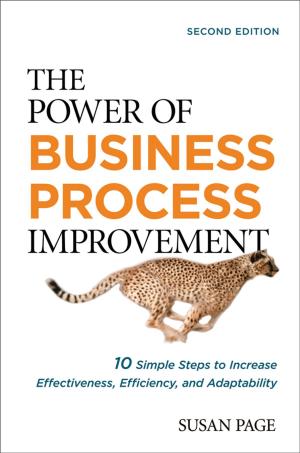The Corporate University Handbook
Designing, Managing, and Growing a Successful Program
Business & Finance, Human Resources & Personnel Management, Training| Author: | Mark D. Allen | ISBN: | 9780814426647 |
| Publisher: | AMACOM | Publication: | June 21, 2002 |
| Imprint: | AMACOM | Language: | English |
| Author: | Mark D. Allen |
| ISBN: | 9780814426647 |
| Publisher: | AMACOM |
| Publication: | June 21, 2002 |
| Imprint: | AMACOM |
| Language: | English |
Motorola. Sun Microsystems. Charles Schwab. Toyota. These global business leaders have bred excellence through innovative executive and management development organizations that go well beyond traditional job training. Known as corporate universities, these entities are essentially strategic partners of their sponsoring companies. Often working in conjunction with traditional educational institutions, they boast cream-of-the-crop faculty from the academic and business communities. Once the province of only the largest corporations, corporate universities are fast becoming the standard at smaller companies as well. This comprehensive handbook is a valuable resource for companies of all sizes who are considering (or already developing) enhanced professional learning programs. Featuring contributions from experts at ten different corporate universities, academic institutions, and consulting firms, the book addresses the three major components of corporate university success: organization, content, and processes. From structural and financial models to the role of technology, from curriculum development to evaluation approaches and measuring ROI, here is a wealth of information on this major development in professional education.
Motorola. Sun Microsystems. Charles Schwab. Toyota. These global business leaders have bred excellence through innovative executive and management development organizations that go well beyond traditional job training. Known as corporate universities, these entities are essentially strategic partners of their sponsoring companies. Often working in conjunction with traditional educational institutions, they boast cream-of-the-crop faculty from the academic and business communities. Once the province of only the largest corporations, corporate universities are fast becoming the standard at smaller companies as well. This comprehensive handbook is a valuable resource for companies of all sizes who are considering (or already developing) enhanced professional learning programs. Featuring contributions from experts at ten different corporate universities, academic institutions, and consulting firms, the book addresses the three major components of corporate university success: organization, content, and processes. From structural and financial models to the role of technology, from curriculum development to evaluation approaches and measuring ROI, here is a wealth of information on this major development in professional education.















